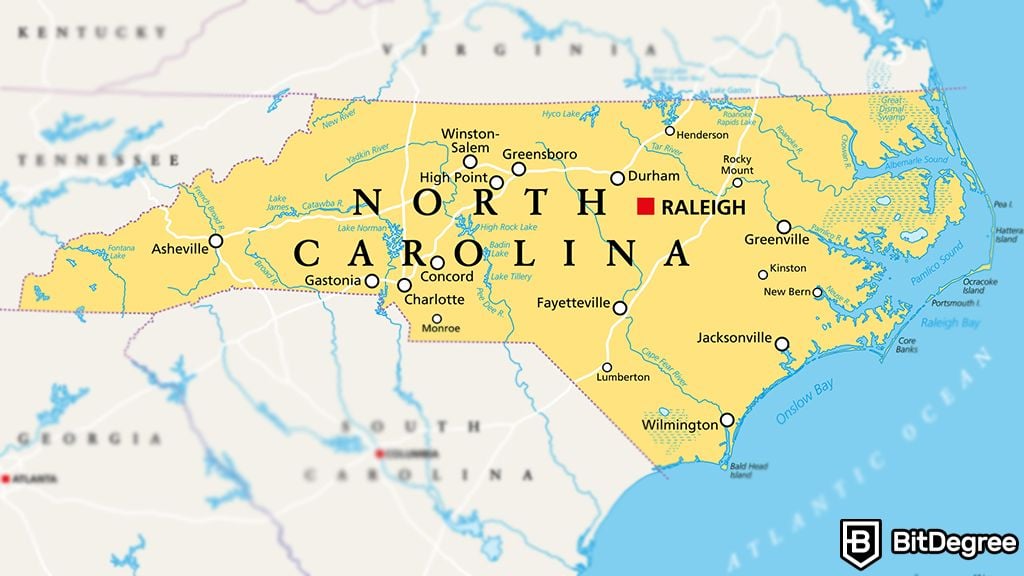[ad_1]
On top of banning the use of CBDC for payments, the bill also prevents the Federal Reserve from making North Carolina CBDC testing ground.
North Carolina’s House of Representatives votes to ban payments in central bank digital currencies (CBDC) to the state.
In a recent legislative move, the North Carolina House of Representatives voted unanimously in favor of House Bill 690.

Did you know?
Want to get smarter & wealthier with crypto?
Subscribe – We publish new crypto explainer videos every week!
With 118 members voting “yes,” the bill aims to ban the use of CBDCs for payments to the state and prevent the Federal Reserve from using the state as a testing ground for a potential CBDC pilot.
The bill was first introduced to the House in April, where it stayed before proceeding to readings and a vote.
House Bill 690 proposes amendments to existing statutes, stating that no state agency or court should accept CBDC payments or participate in Federal Reserve testing of a digital dollar.
The bill will now proceed to the Senate, where it must be approved before being signed into law or vetoed by Governor Roy Cooper.
It is worth noting that North Carolina’s Buncombe County Board of Commissioners recently approved a one-year moratorium on cryptocurrency mining.
Crypto mining is a hot topic among various states in the US. On May 2nd, the governor of Montana approved the bill protecting cryptocurrency miners. On the other hand, Texas legislators are considering removing special incentives for crypto miners operating in the state.
The growing political relevance of CBDCs is evident as the 2024 US elections approach. In March, Florida Governor Ron DeSantis, a potential presidential candidate, called for a nationwide CBDC ban, arguing that the technology was primarily about “surveilling Americans and controlling” their behavior.
Federal lawmakers, such as Representative Tom Emmer and Senator Ted Cruz, have introduced separate bills targeting the Federal Reserve’s authority over CBDCs or proposing an outright ban. Another presidential candidate, Robert F. Kennedy Jr., claimed that CBDCs could lead to “financial slavery and political tyranny.”
The unanimous vote by North Carolina’s House of Representatives highlights growing concerns about CBDCs and their potential impact on individual privacy and financial freedom.
[ad_2]
Source link





